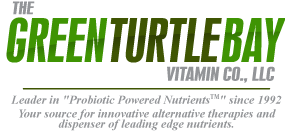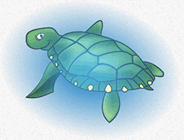Surgery & Herbs
|
Supplements and Surgery — What to Tell Your Doctors Anyone facing surgery wonders, “What if something goes wrong?” Patients know to tell their doctors what medications they take; also, doctors and nurses routinely ask for information about prescription and over-the-counter drugsd uring the preparatory stages before surgery. But what about botanicals and other kinds of dietary supplements? Can they affect surgery and anesthesia? The short answer is yes, some can. A recent article in the Journal of the American Medical Association (JAMA) listed eight herbs that might affect surgery or anesthesia and recommended that doctors ask their patients what supplements they are taking. Similarly, the American Society of Anesthesiologists (ASA) has published a pamphlet listing common uses and potential side effects of thirteen herbs. SupplementQuality.com investigated further to learn not only which supplements can affect surgery and anesthesia — but why and how. Other supplements and surgery A few non-herbal supplements — such as vitamins, minerals, and other special purpose supplements — also have the potential of affecting surgery and anesthesia. SupplementQuality.com asked Paul Thomas, registered dietitian (RD) and editor/publisher of The Dietary Supplement newsletter, which non-botanical supplements people should be careful about before surgery. According to Thomas, “Vitamin E is a blood thinner, but nothing else immediately comes to mind. It’s possible one should stop taking antioxidants during chemotherapy or radiation treatment for cancer — but as to how soon afterwards one can resume, or whether one should take antioxidants afterwards to protect healthy cells, unfortunately none of these questions have answers. There are differences of opinion, but these are based on guesswork and speculation and little else.” Two books that begin to address the question of surgery risks and potential interactions between supplements and drugs are: Physician’s Desk Reference for Nutritional Supplements, and Allison Sarubin’s The Health Professional’s Guide to Popular Dietary Supplements. Which herbs are especially important? The following list shows the specific herbs and potential side effects named in the JAMA article and ASA pamphlet. None of these possible side effects have been proven scientifically beyond a shadow of a doubt — what the federal Food and Drug Administration (FDA) would call significant scientific agreement. Both the JAMA article and ASA pamphlet used phrases like may cause, may interact with, may prolong throughout. However, some degree of suggestive evidence does exist linking these herbs and potential side effects. |
||||||||||||||||||||||||||||||||||||||||||
|
||||||||||||||||||||||||||||||||||||||||||
|
Do herbalists agree? SupplementQuality.com contacted several leading herbalists and asked them if this list and description of potential side effects is accurate. Roy Upton, Executive Director of the American Herbal Pharmacopeia, agrees that the list is basically correct — with two exceptions. Upton says, “I believe the warning about St. John’s wort and anesthesia was an anomaly. I’m not sure what the problem is with echinacea and wound healing. Wound healing is one of its confirmed effects due to its action as a hyaluronidase inhibitor. Also, many botanicals affect metabolization of drugs. One of the most powerful is grapefruit juice.” Herbalist Jonathan Treasure spoke with us at length. He attended medical school at Cambridge University in England before switching careers to focus on herbalism, and although he does not have an MD degree, he has participated in designing research studies at Harvard Medical School. Treasure is a practicing clinical herbalist, a Member of the National Institute of Medical Herbalists in the UK (MNIMH), and a member of the American Herbalist Guild. He pointed out bias in the medical community and literature as well as specific flaws in the JAMA article, then recommended a different approach to the basic question of what to tell your doctor. Getting solid advice about herbs before surgery Treasure says, “Physicians usually do not know enough about herbs to give good advice about which herbs to continue taking and which to stop before surgery. In the medical literature, there is a bias against herbal medicines and a lack of education on the part of physicians. In the popular media, there is sensationalism and ignorance and push for readership. Hysterical stories about the dangers of herbs attract more readers than plain, fact-oriented articles.” Climate of opinion obscures the real issues Unfortunately, this climate of opinion in both medical literature and the popular press tends to obscure the real issues of herbal use and potential interactions between herbs and drugs. According to Treasure, “When a patient is facing surgery, one group of physicians may say that garlic is the most dangerous substance in the world — whereas another group of physicians cite placebo-controlled studies that say garlic doesn’t work. But you can’t have it both ways: that garlic is simultaneously powerful and dangerous as well as weak and ineffectual.” Foods also affect drug metabolism Treasure points out that many foods also cause interactions with drugs. “Grapefruit juice affects the metabolism of drugs (including the blood-thinner Warfarin) by its effects on the liver and gut — yet we don’t hear a hue and cry that grapefruit juice should be prescription only or that patients should stop drinking it two weeks before surgery. Broccoli and the cabbage family contain compounds that affect drug metabolism, as strongly as St. John’s wort in some cases, but we don’t hear a call for patients to stop eating broccoli.” Physicians need better, accurate information Because increasing numbers of Americans are using herbs, physicians need better, more accurate information both about the effects of herbs and potential interactions with drugs. Treasure applauds JAMA and the ASA for drawing attention to the need for physicians to learn about herbal medicines, but adds, “Physicians need to look at the literature in herbal pharmacology instead of reading hysterical reports that are largely unsubstantiated when evaluated by scientific criteria.” JAMA report not based on solid scientific evidence Of the 122 references in the JAMA article, Treasure points out that only 59 are primary literature. Concerning the others, Treasure states, “There is an old joke in medical schools that the plural of anecdote is clinical evidence. It has happened that editorial musings have been quoted — and then other people repeat the quote — and no one goes back to check the original source. Or a journal publishes a letter about a potential interaction, and then other physicians write in saying, ‘Me too, I had a patient,’ and suddenly there is an entire climate of belief with no one doing a serious literature evaluation to establish what the risks actually are.” The real issues for herbs and surgery According to Treasure, “Certain herbal remedies can interact both positively and negatively with certain drugs. If you are contemplating a surgical procedure, your surgical team needs to know what you are taking. Surgical nurses have become very aware of this and now tend to ask about both over-the-counter drugs and dietary supplements. So the first concern is to communicate what one is taking. The second is which herbs might be of consequence.” Herbs likely to affect surgery and anesthesia According to Treasure, three basic kinds of potential effects are important for surgery and anesthesia:
Information in the two website articles was based on a study that appeared in the 11 July 2001 edition of the Journal of the American Medical Association, (286:208-16, 2001). The study also appears on the JAMA website (jama.ama-assn.org) in an area limited to JAMA subscribers. (c) Copyright 1999-2001 Dietary Supplement Quality Initiative. For permission to reprint, please contact the editor. SupplementQuality.coms |




